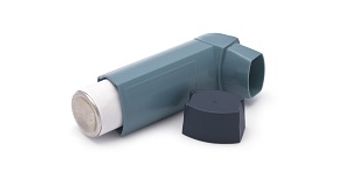
A review of the pathology of asthma and COPD, including the role of the immune system, along with the mechanisms behind the hypercapnia and hypoxemia of COPD, and the blue bloater vs. pink puffer pseudodichotomy.

A review of the pathology of asthma and COPD, including the role of the immune system, along with the mechanisms behind the hypercapnia and hypoxemia of COPD, and the blue bloater vs. pink puffer pseudodichotomy.

Rhinovirus infection tends to aggravate other conditions in the elderly.

Patients with bronchial asthma or chronic obstructive pulmonary disease fare best with metered dose inhalers that have spacer devices.

A discovery at a pharmacy led to a jarring investigation into the past use of cigarettes as a means of treating asthma.

The majority of patients who require inhalers for asthma or epinephrine autoinjectors for allergic disease for do not use the devices properly.

Researchers from the Karolinska Institutet have dismissed the idea of a causal link between antibiotic use in early life and childhood asthma.



In a recent phase 2b study, patients with asthma reported reduced exacerbations and improved lung function after receiving dupilumab, an investigational therapy from Sanofi-Aventis and Regeneron Pharmaceuticals Inc.

The FDA is reviewing a regulatory application to add an asthma indication to Boehringer Ingelheim's chronic obstructive pulmonary disease treatment, tiotropium bromide.

AstraZeneca today announced that it has completed the strategic transaction to transfer the rights to Almirall's respiratory franchise to the company.

Asthmatics with vitamin D deficiency are significantly more susceptible to acute asthma attacks.

As a result of confusing sensations of breathlessness with asthma symptoms, overweight and obese children tend to report poorer asthma control and overuse rescue medications.

Even though smoking can exacerbate respiratory conditions and limit the efficacy of their treatment, patients often purchase cigarettes while filling prescriptions for asthma or antihypertensive drugs at pharmacies.

ADHD medications are prone to the same abuse, misuse, and diversion as opioids.

The results of an FDA safety review of omalizumab (Xolair) suggest the asthma drug slightly elevates the risk of serious cardiovascular and cerebrovascular adverse events.

Those who fear they will lose their jobs have an increased risk of developing incident asthma.

Implementing physician-pharmacist collaborative management methods reduces asthma-related emergency department visits.

Combining 2 classes of COPD medications leads to better outcomes for older adults with comorbid asthma.

Researchers found that inhibiting development of T helper 2 cells may be advantageous in the control of allergic responses.



Chronic lung disease may increase the risk of developing lung cancer, independently of tobacco use and other known risk factors.

